Biographies of the speakers and panelists
Speakers
Suzie Greenhalgh
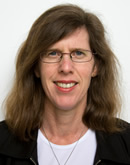
Suzie Greenhalgh is the Portfolio Leader for Supporting Business and Policy at Landcare Research in New Zealand and leads the Freshwater Values, Monitoring and Outcomes programme. Some of Suzie’s current research involves the analysis, design and implementation of environmental and agricultural policy and policy processes (including collaborative processes), the development of market-based instruments for ecosystem services (particularly water quality, biodiversity and greenhouse gases), and developing frameworks to incorporate ecosystem services into decision-making.
Prior to joining Landcare Research Suzie worked at the World Resources Institute, an environmental policy think-tank in Washington, DC. There she worked in a number of other areas including implementation of nutrient trading programmes and reverse auctions; economic valuation of coral reefs in the Caribbean; US agricultural policy as it relates to water quality, biofuels and climate change; and development of greenhouse gas accounting standards.
Jim Sinner
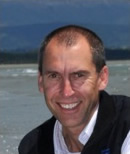
Jim Sinner is a Senior Scientist in the Coastal and Freshwater Group at the Cawthron Institute, and Science Leader for Social Science. Jim uses his background in economics and public policy to collaborate across multiple disciplines, working with government and resource users to integrate information and insights from biophysical and social science to address environmental management challenges. Jim’s main areas of work are freshwater and coastal management and marine biosecurity, and he has also worked on climate change policy, trade policy and fisheries management.
For a research project on Freshwater Values, Monitoring and Outcomes, Jim and his co-researchers are exploring how “value” is perceived, constructed, measured and negotiated in freshwater management, including through collaborative processes.
Originally from North Dakota, Jim attended Harvard and Cornell universities and worked in the US Congress before moving to New Zealand in 1991, where he has worked for 22 years in government, consultancy, advocacy and research roles concerning resource management and environmental stewardship.
Natasha Berkett
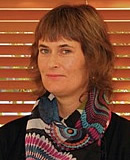
Natasha Berkett is the Planning and Policy Manager for the Coastal and Freshwater Group at the Cawthron Institute in Nelson. She is involved in the Values, Monitoring and Outcomes programme as a member of the research team for the TANK collaborative process in Hawke’s Bay. At Cawthron, Natasha manages projects in both the freshwater and coastal areas, including Cawthron’s involvement in the New Zealand King Salmon EPA process in 2012. She has co-authored a number of reports that interface science and academic research with policy and this is an area of particular interest to her.
Prior to joining Cawthron, Natasha worked at Hawke’s Bay Regional Council as a resource management planner, where she was involved in all aspects of consent processing, monitoring and enforcement. Natasha is currently completing a Masters in Resource Planning from Massey University. Her research is on alternative planning frameworks that could be used for future, contentious, plan change and consent applications.
Rob Davies-Colley
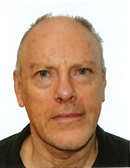
Rob Davies-Colley is a Principal Scientist in the Aquatic Pollution Group at the National Institute of Water and Atmospheric Research (NIWA) in Hamilton. Rob is a geoscientist by background, with a PhD in environmental engineering (Oregon State University 1982). He has worked on water quality in a wide range of water sub-domains from wastewater treatment to deep sea oceanography, and including rivers, lakes and estuaries. He has expertise in river ecology and riparian management as well as water quality. Specialist research interests include optical water quality, microbial water quality, and water monitoring and reporting. Rob is a board member of the International Water Association (IWA) Specialist Group on Diffuse Pollution, and he co-convened the 15th IWA conference on Diffuse Pollution (DIPCON2011) in Rotorua in 2011. He is the scientific spokesperson for New Zealand’s National Rivers Water Quality Network (NRWQN) operated by NIWA and has been an advisor and task leader in the Ministry for the Environment’s (ongoing) National Environmental Monitoring and Reporting project – for which the NRWQN is a model. His work in the Values, Monitoring and Outcomes programme is now increasingly focused on community monitoring. In ‘sister’ research programmes, Rob leads a major project on fine sediment and its optical effects (focused on the Kaipara system) with a view to enumeration of environmental limits, as well as research on the dynamics of contaminant microbes in rivers and estuaries.
Garth Harmsworth
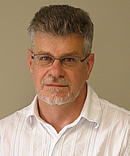
Panelists
Barbara Nicholas
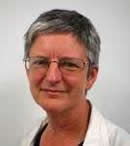
Barbara Nicholas is Team Leader of the Canterbury Water Management Strategy (CWMS) zone facilitators. The CWMS is an initiative of the Canterbury Regional Council to develop a collaborative approach to allocating water in ways that can deliver environmental, cultural and economic benefits. This work draws on Barbara’s previous work in bioethics and policy, working with scientists and communities to think through socially contentious issues.
Prior to joining Environment Canterbury, Barbara worked as a lecturer and Research Fellow in Bioethics at the University of Otago, the New Zealand Technology Clearing House and the Christchurch School of Medicine, and as a senior analyst for the Bioethics Council, Ministry for the Environment. She has also served as a technical consultant on projects such as a futures report on emerging food technologies, a taxpayer guide for the R&D Tax Credit, a future-watch network to alert government to emerging issues in science and technology, review of the Prohibition of Human Cloning Act 2002, and others. Her current interests include the future of food – how we produce it, and how this is affected by changes in economic and social structures as we deal with climate change, environmental degradation, peak oil and the consolidation of food-related business.
Graham Sevicke-Jones
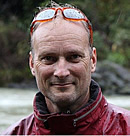
Graham Sevicke-Jones initially worked in the primary sector meat industry before taking on the role of environmental scientist for firstly South Canterbury Catchment Board, Environment Canterbury, and then Hawke’s Bay Regional Council. In these roles he principally managed freshwater and marine water quality and ecological programmes and worked closely with communities on establishing limits to assist in resource management through statutory processes. For the last 12 years Graham has worked as science manager for the Hawke’s Bay and Greater Wellington regional councils and has been involved in enabling collaborative processes for limit setting to meet national and community outcomes at the regional scale. Graham has extensive knowledge of environmental monitoring programmes, transfer of science into policy and effective measurements.
Graham has been involved in numerous national steering groups (including the National Environmental Monitoring and Reporting project),contributed to the National Environmental Monitoring and Reporting forums and has provided feedback on the RMA changes and proposed Bill on environmental monitoring and reporting. Graham has also participated in the government-appointed Land and Water Forum and Ministry for the Environment National Objectives Framework. Graham has been the convenor of the Surface Water Integrated Management Group for 9 years. This special-interest group, consisting of regional council policy staff and freshwater scientists, has a strong emphasis on integrated and collaborative science processes.
Justine Young
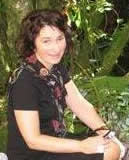
Justine Young is a senior policy advisor at Waikato Regional Council, where she is co-ordinating the policy input to a co-managed council and Waikato and Waipa river iwi project that seeks to assist restoration and protection of water bodies in the Waikato and Waipa river catchments, using collaborative processes. She also worked on the Lake Taupo water quality and diffuse nitrogen discharges project that resulted in a cap-and-trade instrument being operative for that catchment. Justine also has had experience in central government advocacy and district planning roles
Wendy Boyce

Wendy Boyce is the Engagement Workstream Leader at Waikato Regional Council, for a project to improve water quality in the Waikato and Waipa rivers. The project recently conducted a workshop with stakeholders to design the composition of a collaborative stakeholder group. She has more than 20 years’ experience in community change projects and trained in geography and community psychology.
Tim Sharp
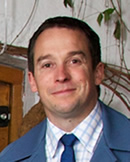
Tim Sharp is a Strategic Policy Advisor at Hawke’s Bay Regional Council with experience in collaborative stakeholder processes. Tim was a project leader for the collaboratively produced Hawke’s Bay Land and Water Management Strategy and led the community freshwater values assessment for the Tukituki Catchment Plan Change. Tim is currently involved in the community-led Hawke’s Bay Regional Biodiversity Strategy and is project-managing a collaborative stakeholder process for the Greater Heretaunga and Ahuriri Plan Change.
Prior to joining the regional council, Tim was an orchardist in Nelson before returning to university where he completed Bachelor degrees in Environmental Studies and Financial Economics and he is currently finishing an Honours degree in AgriCommerce.
Bill Vant
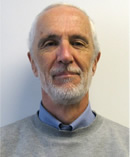
Bill Vant is a water scientist with the Waikato Regional Council in Hamilton. He oversees the council’s water quality monitoring of rivers, lakes and coastal waters in the Waikato Region, and provides advice to decision-makers and to the public on this—including by way of developing the council’s indicators of water quality. He has worked in environmental science for various government agencies for 35 years, and was previously a research scientist with NIWA, Hamilton (and its various predecessors). He continues to enjoy data analysis, and tries to maintain his long-standing interests in nutrient enrichment, plant production and underwater light in a variety of water bodies.
Jane Kitson
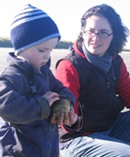
Dr Jane Kitson (Ngāi Tahu, Ngāti Mamoe, Waitaha) is the director of Kitson Consulting, an ecologist and environmental scientist.
Jane has worked in both Māori and local government worlds on a range of collaborative and multidisciplinary projects including research on mātauranga Māori and cultural monitoring tools as well as managing the co-authored State of Southland’s Freshwater Environment reports (Environment Southland and Te Ao Marama Inc.).
Jane has worked on a range of research and management projects including doctoral research on traditional ecological knowledge and harvest management of tītī/muttonbirds (Puffinus griseus); microbial food webs in lakes; research on kanakana/lamprey and the use of harvest mātauranga to monitor population trends, and coastal and freshwater environmental science as the senior surface water scientist at Environment Southland.
Jane has been involved in projects of differing scales, including whānau-driven research; involvement in Ngāi Tahu freshwater strategy development; and national projects such as the National Environmental Monitoring and Reporting and the National Objective Framework for the Ministry for the Environment.
Lian Potter
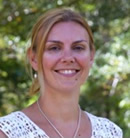
Lian Potter is the team leader for the Science Strategy and Information team, Greater Wellington Regional Council. The team’s role is to support the department in the prioritisation and coordination of science, the management of data, and translation and communication of science. As well as leading the team, Lian sits on the Steering Committee for the establishment of the whaitua committees. These collaborative community-based committees will make recommendations for the management of land and water for their catchment. Lian has also developed a science strategy for the department, and is currently developing a council-wide research strategy that will define how research is prioritised, developed and delivered.
Prior to joining Greater Wellington Regional Council, Lian worked at the Ministry for the Environment as a Senior Analyst for freshwater reporting. As well as producing national report cards, she was the project manager of the National Environmental Monitoring and Reporting project. This collaborative project has involved using experts from across regional councils, CRIs and universities to make recommendations for consistent methodologies and representative site selection for freshwater monitoring, to improve national and regional reporting.
Lian previously worked at the Environment Agency Wales in the UK for 10 years. She was the project manager of the Habitats Directive for South Wales; this involved identifying and mitigating impacts of consents on rivers designated as Special Areas of Conservation. Prior to this she was an environmental scientist, a role which included freshwater monitoring on rivers and lakes in Wales.
Mahuru Robb
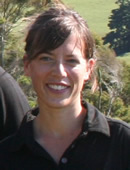
Mahuru Robb (Ngāti Awa/ Ngāti Ranginui) is an MSc student at the University of Waikato, studying Freshwater Ecology. Her research project looks at how mātauranga Māori and science work together when assessing health of wetlands. She is working with tangata whenua from Mōtakotako Marae, developing a set of cultural health indicators to monitor and manage the Toreparu Wetland. She hopes information gathered throughout this research will help build capacity within whānau, hapū and iwi groups when it comes to management of freshwater environments, particularly in the co-management space. By looking at how well these two methods work together, she hopes to increase communication and understanding between Māori and non-Māori decision-makers.
Mahuru continues to work for a small, Hamilton-based environmental consultancy (Kessels Ecology) where she is involved in freshwater monitoring and management within the RMA framework. Her experience as a consultant and role as assistant Māori representative on the Freshwater Sciences Society has highlighted the need for effective and meaningful consultation and tools to co-manage successfully.
Claire Mortimer
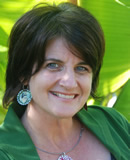
Claire Mortimer is a Senior Policy Advisor for the Ministry for Business, Innovation and Employment where she works on regional economic development and on reporting regional economic activity. Claire developed a guide on monitoring and reporting fresh water policy performance for the Values, Monitoring and Outcomes programme while working for Landcare Research. Prior to that, Claire was involved in regional sustainability strategies and public social marketing campaigns on water quality. Her areas of research included examining why some New Zealand councils have been more successful at implementing strategies than others, determinants of New Zealand eco-innovation and characterising farm-level resilience.
